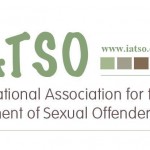Research and Evaluation
The Safer Living Foundation believe in evaluating all projects from the outset, with a view that evidence-based practice and service user involvement are key to the planning and delivery of any new initiative. Nottingham Trent University provide ongoing evaluations for each project that the charity runs.
This area of the website will provide you with an overview of our evaluation ethos, and up to date findings will be published here when they become available.
What do our evaluations look like?
Our evaluations focus on two aspects: (1) The process and (2) The outcomes.
(1) The process: This involves examining all aspects of the service that is being delivered, looking at what works well and what could be improved. For example, we often conduct interviews with service users as they engage with a project, to find out what their experiences are and whether they would prefer anything to be different or improved. The outcomes from this can then be fed back into the service delivery to bring about positive changes to our projects.
(2) The outcomes: This involves examining whether the aims and objectives of each project are being achieved. For example, an aim of our Circles of Support and Accountability projects is that there will be a reduction in loneliness and isolation and an increase in mental wellbeing and so we measure these before and after a Circle finishes, to see whether these aims have been achieved.
Find a copy of our latest evaluation report here!
Board of trustees evaluation update 7.8.19
Prison-based CoSA PhD Research
‘This time it’s different’ preparing for release through CoSA (The prison model): A phenomenological and repertory grid analysis.
Circles of support and accountability (CoSA) in the prison-model begin prior to the core members’ release from prison and continue with them on release in to the community. The purpose of this study was to explore the expectations of release of those convicted of a sexual offense and how this develops during their participation in the prison sessions of CoSA. The research question was to consider how the prison-model of CoSA relates to the desistance of crime, in particular the phases of desistance developed by Gobbels, Ward, and Willis.
Data were collected using both phenomenological interviews and repertory grids at two different time points; prior to starting the circle in prison (n = 9) and just before release (n = 5). The findings suggest the prison sessions provide a sense of support and “no longer being alone” often absent in those who sexually offend. The additional prison sessions enabled the participants to experience this during their approaching release date; a stressful period that was characterized by anxiety. Further research is now required to explore whether circles in the prison-model are able to encourage and reinforce the cognitive change required for desistance, enabling the core members to successfully manage their underlying anxieties surrounding societal stigmatization.
A prison-model of CoSA: The potential to offer ‘through the gate’ support and accountability.
Circles of Support and Accountability (CoSA) are an intervention used to support and enable those who have been convicted of a sexual offence (core member), to reintegrate back into society, whilst still holding them accountable for their behaviour (Cesaroni, 2002). The purpose of this study was to introduce a new prison-model of CoSA and to explore the core members’ perceptions of their release from prison, and subsequent future in the community, prior to it starting. Interviews and repertory grids were carried out with those who had accepted a core member place on this initiative (n = 9). The findings derived from the data highlight the core members’ concerns regarding their pending release from prison, along with a potential turning point towards a more prosocial self. A prison-based model of CoSA may provide support and accountability during this transitional stage, thus helping to counter any isolation experienced and capitalise on any cognitive change.
Book Series
Trustees from the Safer Living Foundation, who also belong to the SOCAMRU at Nottingham Trent University, have recently released a book series on Sexual Crime. One of the books is concerned with Circles of Support and Accountability. Others look at the experience of imprisonment and the prevention of sexual offences.
For access to the book series please click here. All proceeds from this book series go to the Safer Living Foundation Charity
Conference Presentations
BPS DFP Conference Posters 2018.
The following two posters are from the Safer Living Foundations recent attendance and presentation at the Annual British Psychology Society Division of Forensic Psychology Conference held in Newcastle in June 2018. One is for the YPCoSA evaluation and the other on the Aurora project (prevention) evaluation.
[gview file=”http://www.saferlivingfoundation.org/wp-content/uploads/2015/11/YPCoSA-Evaluation-DFP-Poster-14.6.18-v8.pdf”]
[gview file=”http://www.saferlivingfoundation.org/wp-content/uploads/2015/11/DFP-Poster-2-FINAL.pdf”]
Prevention in the UK: How are we tackling sexual (re) offending? 9 April 2018
Follow the link above to find the slides presented at the Prevention Conference held at Nottingham Trent University in collaboration with the Safer Living Foundation.







